Landing an interview signifies that your qualifications align with the role. However, your performance hinges on how you present yourself: your communication style, reactions, and conversational ability. These qualities aren't developed overnight through last-minute preparation. They stem from presence of mind, composure, and thoughtful articulation. Given that interviews often consist of brief interactions, your demeanor carries significant weight.
Here are some practical habits that can genuinely improve your interview performance:

Rushing into a response can make your answer seem disorganized. Taking a moment to pause allows you to gather your thoughts, demonstrating that you're engaging in deliberate thinking rather than simply reciting memorized answers.

Encountering a question that you don't know the answer to? Don't attempt to fake it. Be upfront about your lack of knowledge and then articulate how you would go about finding the solution. Interviewers value your problem-solving approach more than knowing every answer.
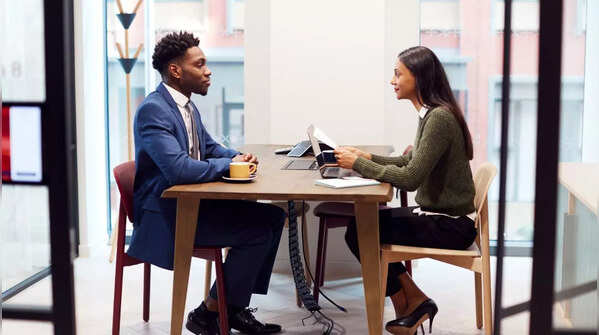
Career breaks or job transitions are common. Avoid attempts to conceal or over-explain them, as this can be counterproductive. Provide a concise explanation of the reason behind the gap or change. Whether it was for personal reasons, skill development, or exploring new opportunities, honesty and composure project confidence.
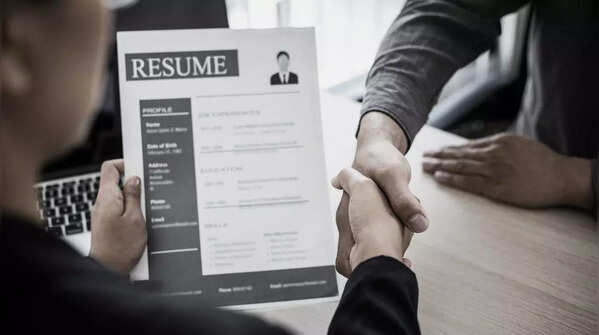
Joining the interview too early can create an awkward situation, while arriving even a few minutes late can convey a lack of consideration. Aim to join approximately 10 minutes beforehand. This demonstrates your readiness without imposing on the interviewer's time.

Conducting basic research on the company's recent activities, leadership, and core focus areas can significantly enhance your interview performance. This demonstrates your interest and enables you to ask more insightful questions, showcasing how you can contribute to their goals.

Even in virtual interviews, your posture and movements are important. Maintain a straight posture, keep your hands visible, and make occasional eye contact with the camera. The goal is to appear engaged and attentive without exaggerating your movements.
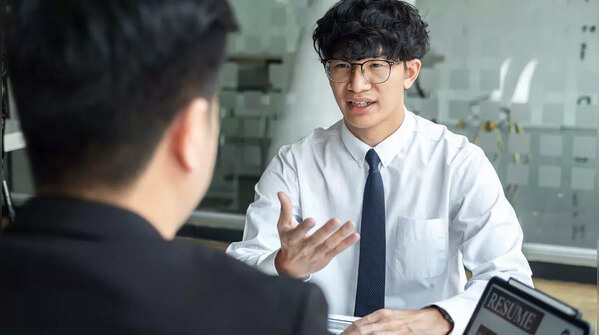
Concluding the interview with "I don't have any questions" can come across as scripted. Before the interview, formulate a few genuine questions about the team, potential initial responsibilities, or how success is measured within the role. Even a couple of well-considered questions can leave a lasting positive impression.

 Blackcaps and White Ferns Face Packed Home Summer Against Cricket Heavyweights
Blackcaps and White Ferns Face Packed Home Summer Against Cricket Heavyweights
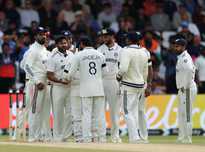 Gambhir Defends India's Tailenders After Headingley Collapse; Cites Dropped Catches as Key Factor in Test Loss
Gambhir Defends India's Tailenders After Headingley Collapse; Cites Dropped Catches as Key Factor in Test Loss
 England Captain Stokes Lauds Duckett and Crawley for Blistering Start in Record Chase Against India
England Captain Stokes Lauds Duckett and Crawley for Blistering Start in Record Chase Against India
 7 Proven Habits to Nail Your Next Job Interview: Project Confidence and Authenticity
7 Proven Habits to Nail Your Next Job Interview: Project Confidence and Authenticity
 Hair Oil vs. Serum: Which Elixir is Right for Your Hair Type? A Comprehensive Guide
Hair Oil vs. Serum: Which Elixir is Right for Your Hair Type? A Comprehensive Guide
 Ogimi's Secrets: 3 Life-Extending Lessons From Japan's Village of Longevity
Ogimi's Secrets: 3 Life-Extending Lessons From Japan's Village of Longevity
 Facial Icing: Hype or Help? Benefits, Risks, and Safe Application of This Viral Beauty Trend
Facial Icing: Hype or Help? Benefits, Risks, and Safe Application of This Viral Beauty Trend
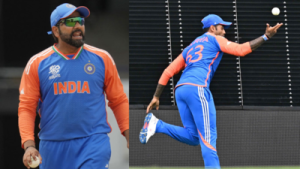 Suryakumar Yadav's Sensational Catch: Rohit Sharma Reveals T20 World Cup Turning Point
Suryakumar Yadav's Sensational Catch: Rohit Sharma Reveals T20 World Cup Turning Point